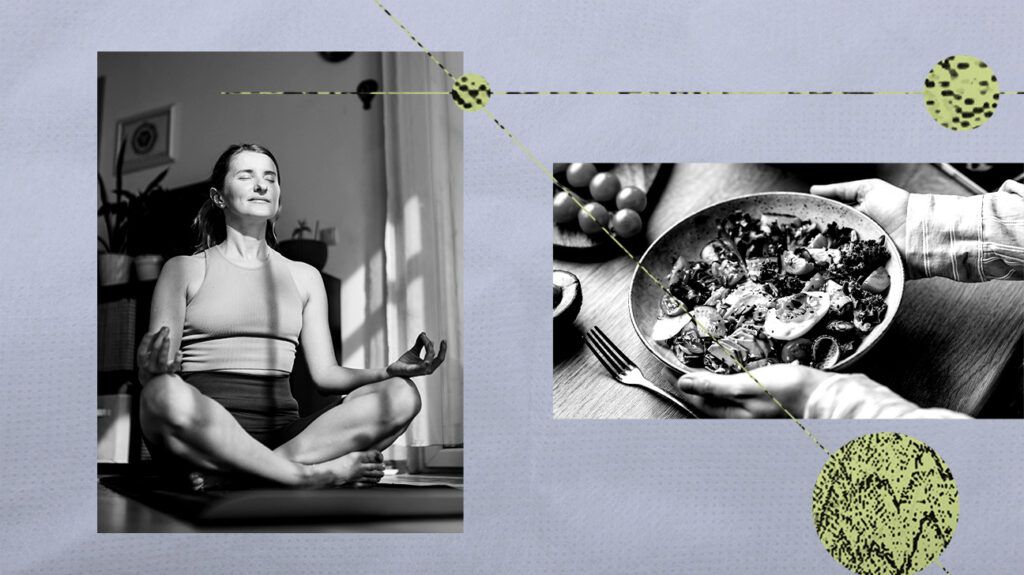Chronic lymphocytic leukemia (CLL) often causes overwhelming fatigue that does not go away with rest. A person may be able to manage fatigue due to CLL with lifestyle changes and dietary adjustments.
CLL refers to cancer of the blood and bone marrow. It generally develops in adults but rarely in children. It usually grows slowly, but some may experience faster growth.
Fatigue in CLL is a common symptom, and it can be troublesome because it causes someone to feel exhausted even when otherwise well-rested.

CLL can affect a person’s energy level in different ways. Some causes of fatigue due to CLL include:
- a decrease in red blood cell counts, leading to a lack of oxygen that triggers feelings of being out of energy and out of breath
- systemic (body-wide) inflammation, which can increase feelings of fatigue
- a reduction in white blood cells that requires extra energy to fight infections
- the production of cytokines, which can contribute to fatigue
Cytokines are proteins that
People undergoing treatments, such as chemotherapy,
- dehydration
- stress
- sleep disturbances
- smoking
- nutritional deficiency
- overweight or obesity
CLL-related fatigue differs from being tired.
In most cases, a person who is tired will recover their energy with appropriate rest and relaxation. For example, they may feel fatigued after running or walking a long distance, but they will recover their energy after resting for a few minutes or hours.
A person with cancer-related fatigue will often continue to feel overwhelmingly tired even after resting or sleeping. For example, those with CLL may wake up feeling fatigued, even after a full night’s sleep. Even with rest, the feeling of fatigue does not go away.
People often describe feelings of
- weak
- slow
- lazy
- tired
- heavy
- having little to no energy or “get-up-and-go”
- weary
- exhausted
- worn-out
A person with CLL may be able to take some steps to help manage fatigue. These approaches may work well for some, but their effectiveness can vary from person to person.
Exercise
Exercise
A person may want to choose an activity they enjoy to help increase the likelihood of sticking with an exercise routine.
It is important for individuals to speak with their healthcare team about starting or continuing an exercise routine and only do as much activity as they can.
Nutrition
Proper nutrition can help with CLL-related fatigue.
According to a 2019 review, researchers found evidence suggesting that consuming a diet rich in fruits, vegetables, lean proteins, whole grains, and anti-inflammatory fatty acids may improve cancer-related fatigue. They noted this may help both before, during, and after cancer treatment periods.
Making these lasting changes to eating habits may help someone manage fatigue.
Take breaks
Breaks can play an important role in recovering energy levels throughout the day. A person with CLL may want to plan frequent breaks during the day to help them recover energy.
This may mean taking more steps to plan for their day. Schedule changes that may help with taking more breaks include:
- scheduling meetings earlier in the day
- getting the most important work done earlier in the day
- scheduling less work to do on any given day
Hydration
Dehydration
A person with CLL may want to consider carrying a water bottle with them and taking sips throughout the day to help them stay hydrated. This may help them feel more energetic throughout the day.
People who want more flavor may squeeze a lemon or other citrus fruit into their water. Adding ice to a bottle may also help make water easier to drink.
Relaxation methods
Relaxation can help manage stress and improve mood and overall well-being.
According to a 2024 systemic review, progressive muscle relaxation training can help improve energy levels in people with different types of cancer. It may also help improve anxiety, sleep quality, and depression.
Progressive muscle relaxation involves tensing and releasing different muscles throughout the body.
Other relaxation techniques may also help, including:
- meditation
- yoga
- deep breathing exercises
Some evidence suggests mindfulness-based interventions may also help with cancer-related fatigue. However, additional studies are still necessary to fully understand how mindfulness can affect fatigue.
Vitamins and supplements
Some vitamins and supplements may help manage fatigue relating to CLL. Many people with cancer or survivors have decreased levels of vitamins and minerals.
Despite this, a 2019 review noted that the need for supplements for those with cancer is not yet fully established. This means it is unclear exactly how effective they are at reducing cancer-related fatigue.
However, if a deficiency exists, taking supplements to help restore missing nutrients may help. Blood tests can help test for nutritional deficiencies, such as iron deficiency.
A person also needs to discuss taking supplements with a doctor before taking them, as they may interfere with medications.
Several different comorbid (co-occurring) conditions may cause fatigue.
Healthcare professionals may be able to help by addressing the underlying conditions that can contribute to fatigue. These may include:
- anemia
- sleep issues
- pain
- low appetitive
- distress
Anemia, which refers to low red blood cell counts, can cause fatigue. If an iron deficiency is the underlying cause of anemia, a doctor
Other treatments will vary according to other conditions that may be affecting a person’s fatigue.
Leukemia resources
Visit our dedicated hub for more research-backed information and in-depth resources on leukemia.
A person with chronic lymphocytic leukemia (CLL) can help manage fatigue at home. This often involves lifestyle changes, such as increasing exercise, changing diet, and using relaxation techniques.
In some cases, a doctor may be able to help those with fatigue by treating any other underlying conditions, such as anemia.
